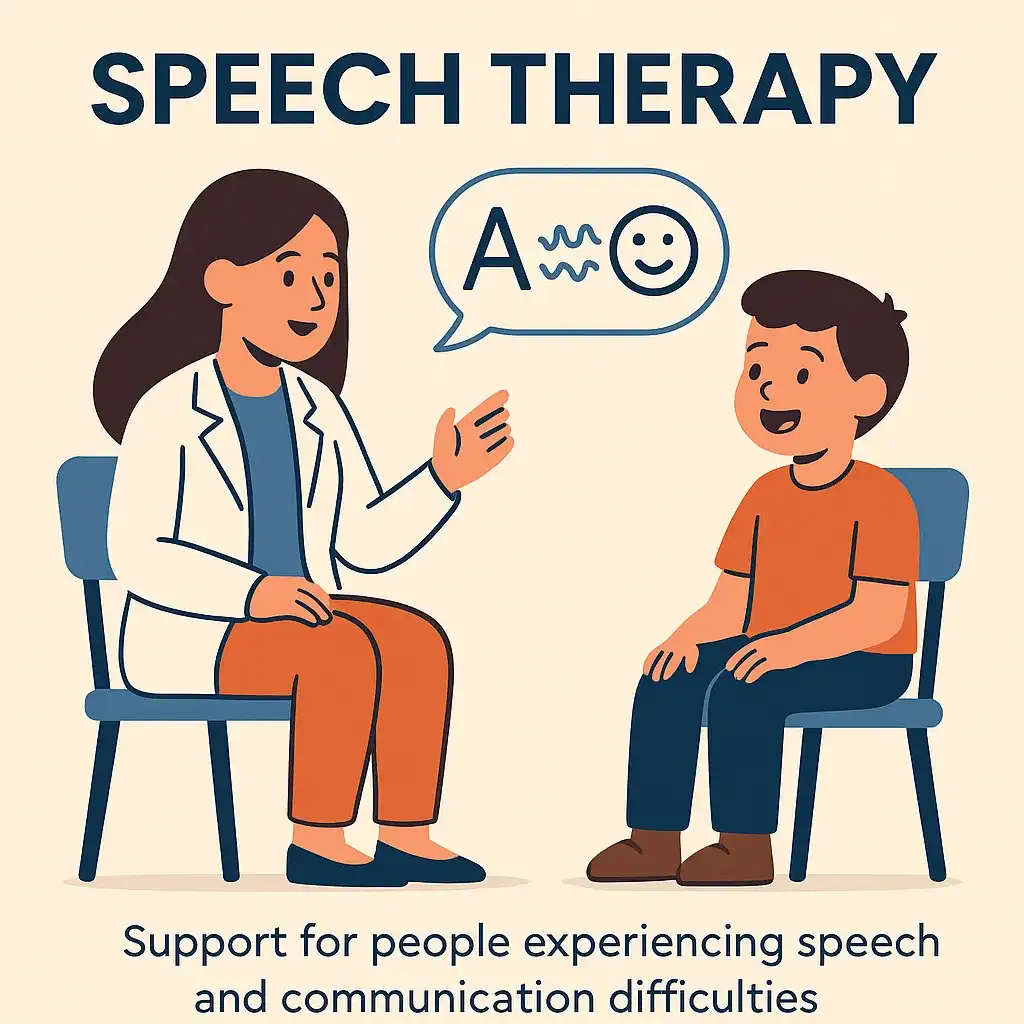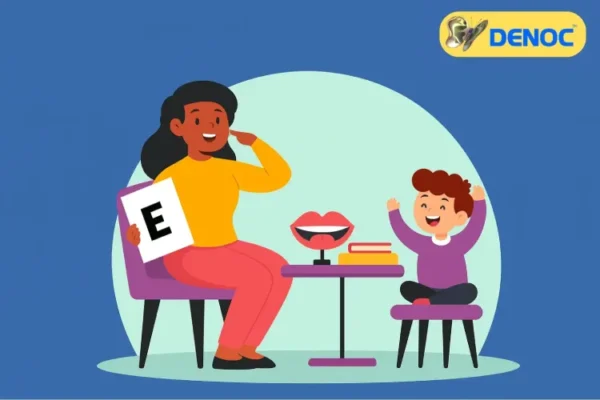🗣️ What Is Speech Therapy Treatment?
Speech therapy is support for individuals—both children and adults—experiencing speech and communication difficulties. It is conducted by professionals called Speech-Language Pathologists (SLPs), commonly known as speech therapists.

🔍 How Does It Work?
SLPs start by assessing the individual to identify the specific type of speech or language disorder. Based on this diagnosis, they create a customized treatment plan to address the individual’s needs.
📌 Types of Disorders Treated with Speech Therapy
- Language Disorder: Difficulty understanding or forming words and sentences. Includes both receptive (understanding) and expressive (speaking) challenges.
- Articulation Disorder: Trouble pronouncing certain sounds correctly.
- Fluency Disorder: Conditions like stuttering, where speech is blocked or repeated.
- Voice Disorder: Issues with pitch, tone, volume, or quality of voice caused by vocal cord dysfunction.
- Cognitive-Communication Disorder: Difficulty communicating due to brain injury or neurological condition affecting thought processing.
- Aphasia: An acquired disorder that affects a person’s ability to speak, understand, read, and write—commonly caused by a stroke.
- Dysarthria: Slurred or slow speech due to weak or uncontrollable speech muscles—often linked to nervous system disorders.
👧 Speech Therapy for Children
Therapy for children is customized based on age, medical conditions, and type of disorder. During sessions, the SLP may:
- Engage the child through play, books, and pictures to encourage language development.
- Model correct sounds and syllables to teach proper pronunciation.
🧑 Speech Therapy for Adults
Therapy for adults focuses on improving language, voice, articulation, and cognitive communication skills. Exercises and techniques are tailored to the individual’s needs.
👨👩👧 How Can Parents Help?
Parents play a crucial role in their child’s speech development. Children make the best progress when parents:
- Participate in therapy activities and follow home-based tasks recommended by the SLP.
- Support and encourage the child patiently throughout the process.
Overcoming a speech or language disorder takes time and dedication. Patience, consistency, and family involvement are key to long-lasting improvement.


